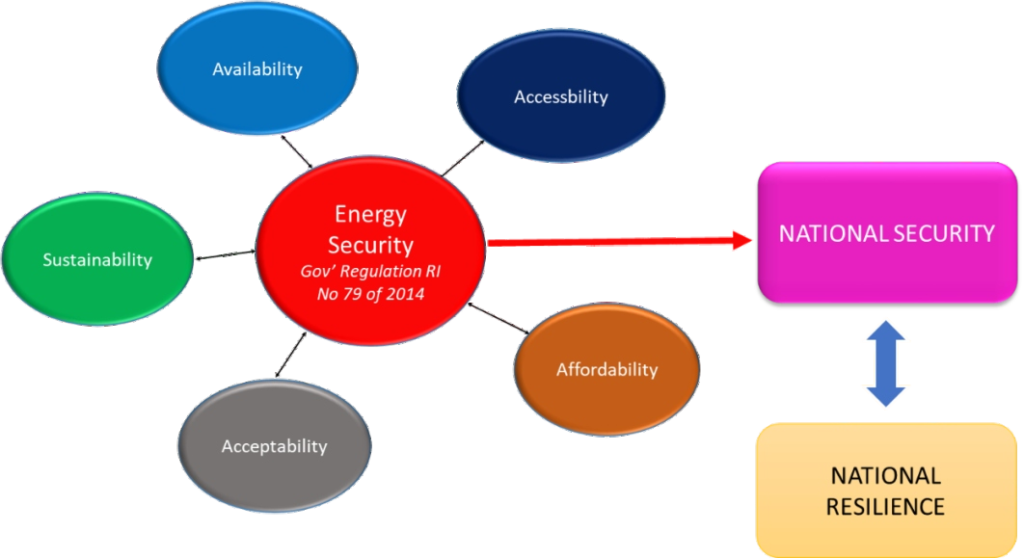
Energy Independence and National Security: Achieving a Sustainable Future
Introduction
Energy independence and national security have gained significant attention in recent years due to the increasing reliance on energy resources. Securing a sustainable energy future becomes crucial as nations become more dependent on energy sources. This article aims to explore the historical background, key concepts and definitions, main discussion points, case studies, current trends and developments, challenges or controversies, future outlook, and the significance of energy independence for national security.
Historical Background
Throughout history, energy dependence has been a pressing concern for nations worldwide. Relying on foreign energy sources can lead to economic vulnerabilities and geopolitical conflicts. Key historical events and policies have shaped the discourse on energy independence and national security.
Key Concepts and Definitions
To fully comprehend the significance of energy independence for national security, it is important to define these concepts. Energy independence refers to a nation’s ability to fulfill its energy needs domestically, reducing reliance on foreign energy sources. The relationship between energy independence and national security lies in the fact that energy plays a fundamental role in a nation’s economic stability, military capabilities, and overall resilience. Renewable energy sources play a crucial role in achieving energy independence and enhancing national security by diversifying energy sources and reducing dependence on foreign oil.

Main Discussion Points
Economic and geopolitical implications of energy dependence
Energy dependence can have far-reaching economic and geopolitical consequences. Countries heavily reliant on foreign energy sources are vulnerable to price fluctuations and supply disruptions, which can have severe economic repercussions. Geopolitical conflicts often arise from competition over energy resources, underscoring the importance of energy independence in maintaining national security strategies.
Role of renewable energy in achieving energy independence
Renewable energy sources offer numerous benefits in reducing dependence on foreign oil and enhancing energy independence. By harnessing solar, wind, hydro, and other renewable sources, nations can diversify their energy mix, reducing vulnerability to price shocks and supply disruptions. This diversification also enhances national security by promoting a sustainable and resilient energy sector.
Energy efficiency and conservation as key components of energy independence
Energy efficiency plays a pivotal role in achieving energy independence by reducing overall energy consumption. Prioritizing energy-efficient technologies and practices allows nations to optimize their energy use, thereby reducing dependence on foreign sources. Conservation measures, such as promoting responsible energy consumption and implementing energy-saving policies, also contribute to energy independence and national security.
Case Studies or Examples
Real-world examples of countries that have achieved energy independence provide valuable insights into the relationship between energy dependence and national security. These case studies highlight successful strategies, policies, and technologies that have enabled nations to achieve greater energy independence and enhance their national security.

Current Trends or Developments
Recent trends in renewable energy adoption have significantly impacted energy independence. The global shift towards renewable energy sources, such as solar and wind power, has accelerated progress in achieving energy independence. Advanced technologies, including smart grids and energy storage solutions, also play a crucial role in enhancing national security by ensuring a reliable and resilient energy infrastructure.
Challenges or Controversies
Transitioning to renewable energy and achieving energy independence is not without its challenges. Economic, technological, and political barriers often impede progress in the renewable energy sector. Controversies surrounding the impact of energy policies on national security further complicate the discourse, requiring careful consideration of the potential risks and benefits.
Future Outlook
The implications of energy independence for national security are significant. As countries continue to prioritize sustainability and resilience, innovative policy directions and technological advancements will play a crucial role in achieving energy independence. Embracing renewable energy sources, investing in research and development, and fostering international cooperation are key to securing a sustainable energy future.

Conclusion
Energy independence is a critical component of national security. By reducing dependence on foreign energy sources and embracing renewable energy, nations can enhance their economic stability, military capabilities, and overall resilience. Achieving energy independence requires a comprehensive approach that includes energy efficiency, conservation measures, and the adoption of renewable energy sources.
References
For further reading on energy independence and national security, the following sources provide valuable insights:
“Energy Independence and Security Act of 2007” by the U.S. Department of Energy
“Energy Security and Energy Independence: Assessing U.S. Policies” by the Congressional Research Service
“Renewable Energy and National Security: Challenges and Opportunities” by the National Academies of Sciences, Engineering, and Medicine




